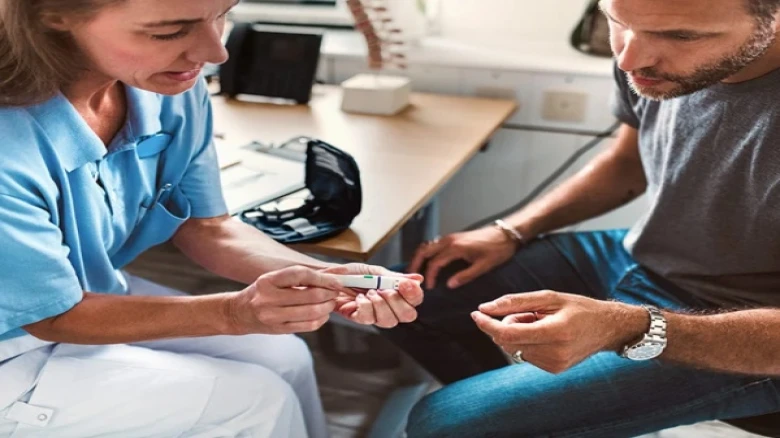Insulin resistance can lead to a host of other major health issues, including life-threatening heart attacks and strokes...
Digital Desk: Insulin resistance plays a significant role in the development of type 2 diabetes. It happens when the cells in the body become less sensitive to the actions of insulin, a hormone that regulates blood sugar levels. As a result, the pancreas generates more insulin to compensate, resulting in increased blood insulin levels.
Additionally, Diabetes develops when the body's capacity to maintain normal blood sugar levels deteriorates over time.
However, did you know that, in addition to diabetes, insulin resistance is at the root of several other health issues? check here how-
In an Instagram post, certified nutritionist Bhakti Kapoor highlighted how insulin resistance causes changes in glucose and lipid metabolism, which lead to diseases including diabetes, cardiovascular disease, and hypertension. "Insulin resistance syndrome is the name given to this group of medical problems (also known as metabolic syndrome)," she explained.
Aside from diabetes, other problems associated with insulin resistance include fatty liver and hormonal imbalances, which can result in acne, hirsutism, PCOS, and infertility.
Dr Aniket Mule, Consultant, Internal Medicine, Wockhardt Hospitals at Mira Road, approves stating that insulin resistance is present in illnesses other than diabetes. Obesity, cardiovascular disease, nonalcoholic fatty liver disease, metabolic syndrome, and polycystic ovarian syndrome (PCOS) are well-known illnesses that can increase one's risk of insulin resistance.
"In addition, not getting enough physical activity has been linked to insulin resistance and prediabetes." According to several studies, insulin resistance can lead to a slew of other major health issues, including heart attacks and strokes, both of which are life-threatening and contribute to higher morbidity and death rates," the expert stated.
Dr Aniket Mule also suggested a few steps to control insulin resistance-
1| Take the medication that your doctor has prescribed. Do not exceed the recommended dosage without first consulting your doctor.
2| Every day, you should exercise for at least 45 minutes.
3| Get enough sleep and avoid stress. Excessive activity should be avoided.
4| Maintain a healthy weight and eat a well-balanced diet. When it comes to diet.
5| You may also seek the advice of an expert who can advise you on what to eat and what to avoid if you have insulin resistance.
While insulin resistance cannot be reversed, nutritionist Bhakti Kapoor stated that it can be treated with a long-term combination of dietary and lifestyle adjustments.

Leave A Comment